Looking Back at the Neuchâtel Graduate Conference 2019
Innovative Approaches Highlighted at the 2019 Graduate Conference
The third edition of the Neuchâtel Graduate Conference on the theme of Innovative Approaches to Migration and Mobility Studies took place from 12 to 13 September 2019 at the University of Neuchâtel. The conference, organized by the nccr – on the move in collaboration with the Swiss Subsaharan Africa Migration Network and the Swiss Forum for Migration and Population Studies, provided a stimulating and informal context where researchers from various institutions and interdisciplinary backgrounds could exchange ideas, establish networks, and initiate collaborative work.
The conference came to fruition by the successful, albeit time and energy-consuming endeavor of its organizing committee, consisting of nccr – on the move members, Katrin Sontag, Oliver Pedersen, Annique Lombard, Nenad Stojanovic, and Lorenzo Piccoli (chair). Other doctoral students and postdocs also took part in selecting the applications, identifying the participants in view of panels, organizing side-activities, chairing sessions, and selecting candidates in view of the Best Paper Award. The spirit of the conference was well captured by the numerous tweets published under the hashtag #neuchgradconf19, as well as the short clip prepared ahead of the event.
The extraordinarily large number of applications, namely 165 from over 50 countries, made the task of selecting the successful proposals very demanding. Nevertheless, the selection committee managed to narrow down the number to 80 accepted proposals, of which 40 received scholarships to attend.
The successful submissions were divided into nine panels (Attitudes Towards People on the Move; Emerging Patterns of Mobility; The Strategic Use/Misuse of Citizenship Status; Transnational Dynamics; Governing Migration through Paperwork; Queer and Gendered Perspectives on Mobility; Asylum Seekers: Human Solidarity and Institutional Restrictions; Representations of the “Refugee Crisis”; Pitfalls of Migration and Mobility Categories). Four roundtables were also organized (Public Policies and the Production of Uneven Mobility Rights; Discrimination and Obstacles to Work; Social Protection across Borders; Families and Children on the Move).
A few of the participants have also subsequently published their work in the nccr – on the move blog; “My Heart Is Still There”: Family Reunification of Refugees in Brazil (Patrícia Nabuco Martuscelli) and Family Affairs – An Intergenerational Dialogue on Diaspora (Silvia Wojczewski).
Sophie Andreetta, from the Max Plank Institute for Social Anthropology, received the Best Paper Award for her article: “Writing for different audiences: social workers, irregular migrants and fragmented statehood in Belgian welfare bureaucracies”. The event marked the first time the award was assigned to a qualitative paper in the field of anthropology. Previously, this award had only been given to two scholars in the field of quantitative political science: Samuel D. Schmid (European University Institute), 2017 and Lea Portmann (University of Lucerne), 2018.
In addition to the traditional panels and roundtables, three expert interviews, with introductory questions prepared by the doctoral students and postdocs, were organized. “We thought this was a good way of facilitating exchange between junior and senior researchers,” explains Lorenzo Piccoli, lead in the organization of the conference.
The topics of the expert interviews included “Enduring Inequalities in Academia” (chaired by Raquel Delgado with the participation of René de Groot, Jean-Michel Lafleur, Anita Manatschal, Chioma Joyce Onukogu); “Does It Still Make Sense to Use the Term Migrant in Today’s Society?” (chaired by Nenad Stojanovic with the participation of Virginie Guiraudon, James F. Hollifield, Irini Kadianaki, Marco Martiniello, Patrick Simon, and Ann Singleton); and “Producing and Communicating Migration and Mobility Data” (chaired by Lisa Marie Borrelli with the participation of Pau Baizan, Godfried Engbersen, Flavia Fossati, Dominik Hangartner, Thomas Huddleston, and Jean-Michel Lafleur). “This format worked really well and provided ample space for discussion,” Lorenzo Piccoli adds.
The 2019 Graduate Conference also included a series of side-events. “These activities were particularly important to us because we did not want this conference to be a formal event where people come exclusively to present their work. Instead, we wanted to facilitate interactions and promote interdisciplinary dialogues,” says Lorenzo Piccoli.
With this mind, the Graduate Conference hosted a walking tour of the old town of Neuchâtel with the organisation cooperaxion on the topic of “Obscure Businesses”, focusing on Neuchâtel and its role in the transatlantic slave trade of the 17th – 19th century. An exhibition, “Tanakra, the Mobility of People in Niger” was also organized on photos made by Francesco Bellina with the participation of Giacomo Zandonini. Finally, a PowerPoint karaoke was also set up to inspire the more creative sides of the participants, which gave rise to some interesting examples of out-of-the-box thinking.
To conclude, the feedback received from the participants has been very positive. The survey circulated after the event highlighted a few criticisms, namely the inadequate format of the roundtables for in-depth discussion and the slightly small rooms. However, several achievements such as the relaxed collaborative atmosphere, the interactions and exchanges between junior and senior researchers, the interdisciplinarity, the novelty of the topics and original approaches in the fields of migration and mobility studies were also noted. A full report of the survey is available through this link.
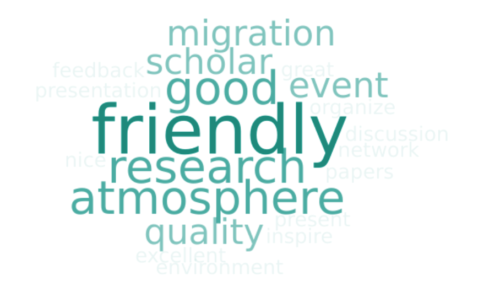
“For the fourth edition of the conference, we will continue to experiment with the format of this event, while preserving its distinguishing features: the collaborative atmosphere, the interdisciplinary and constructive exchange between junior and senior researchers,” concludes Lorenzo Piccoli.
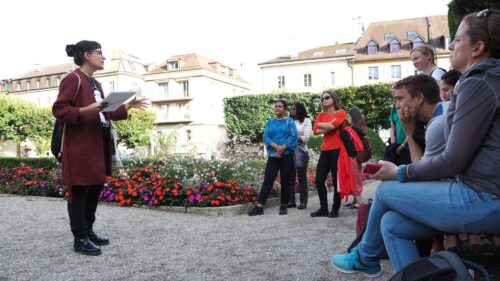
The pre-conference event, a walking city tour in Neuchâtel
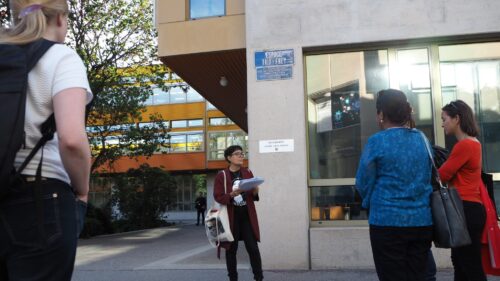
Honouring the first black Federal chancellor at the square Tilo Frey
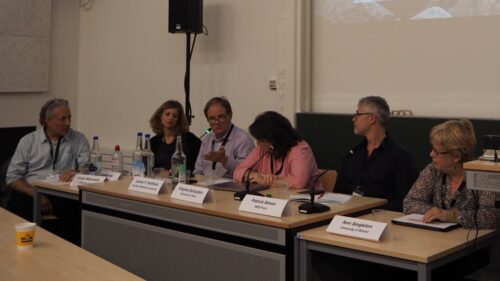
Expert interview “Does It Still Make Sense to Use the Term Migrant in Today’s Society?”
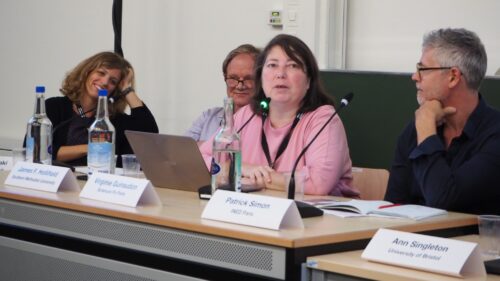
Expert interview
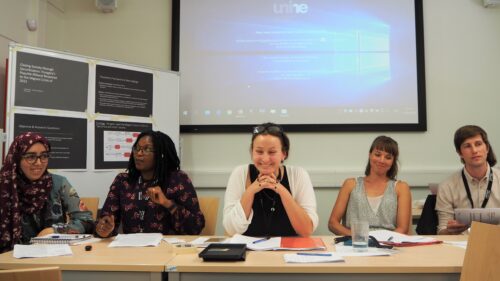
Roundtable presenters replying to questions of the other participants
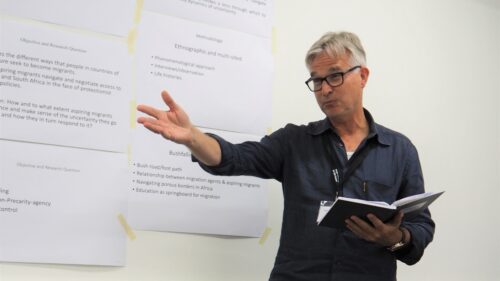
Roundtable feedback from Prof. Engbersen
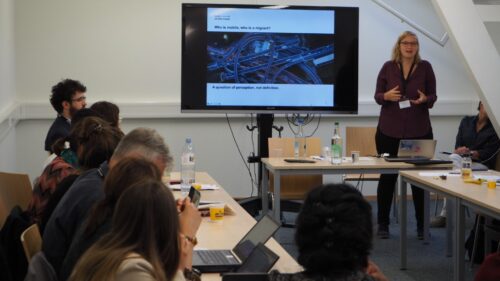
Panel presentation by Paula Hoffmeyer
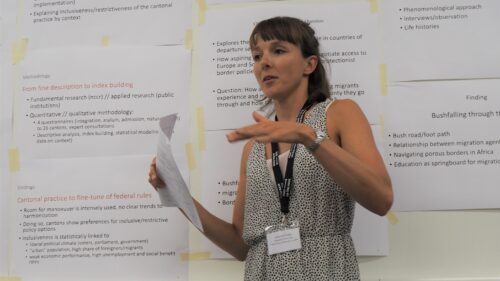
Johanna Probst presents study comparing the intergration policies of Swiss cantons
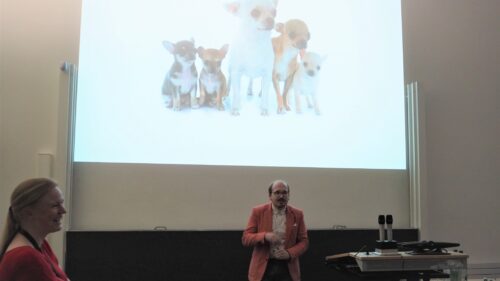
PPT karaoke competition talk from Marco Bitschnau about Chihuahuas
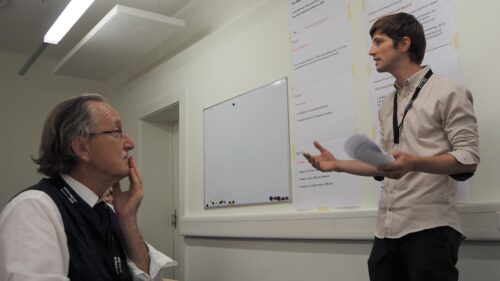
Roundtable with Frowin Rausis presenting and receiving feedback from Prof. de Groot
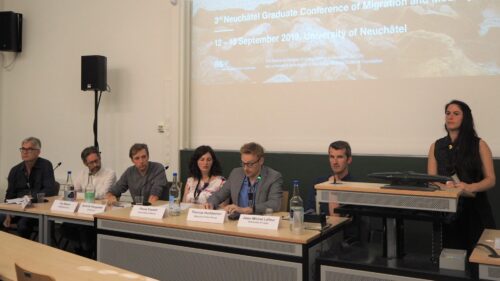
Expert interview “Producing and Communicating Migration and Mobility Data”

Best Paper Award winner Sophie Andreetta
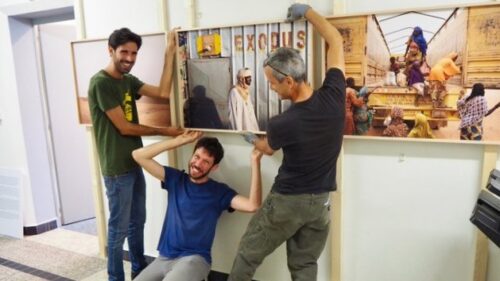
Setting up of the photo exhibition “Tanakra, the Mobility of People in Niger”
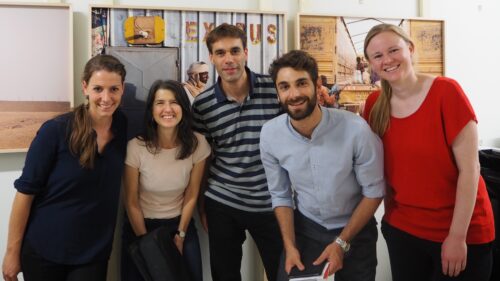
The organizing team (Oliver Pedersen should be on this photo too)

